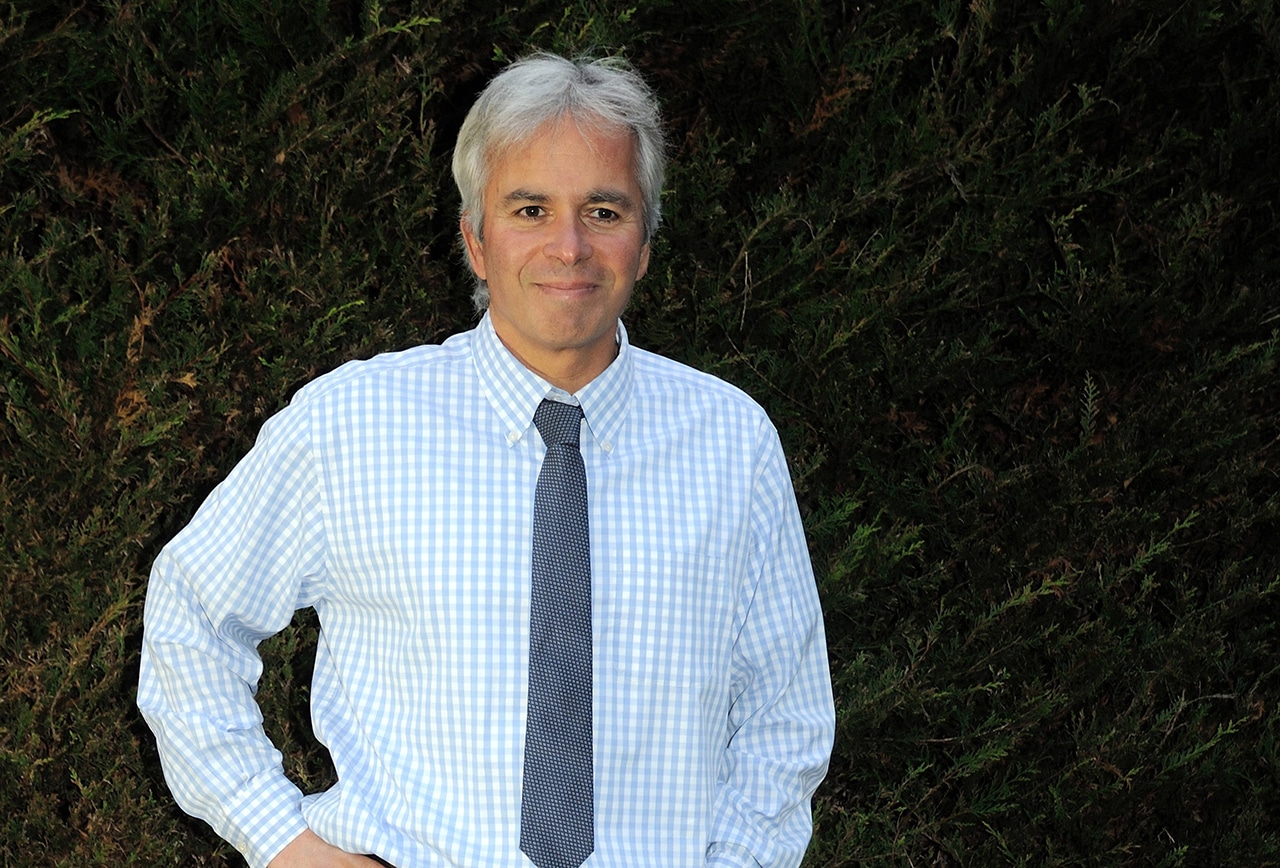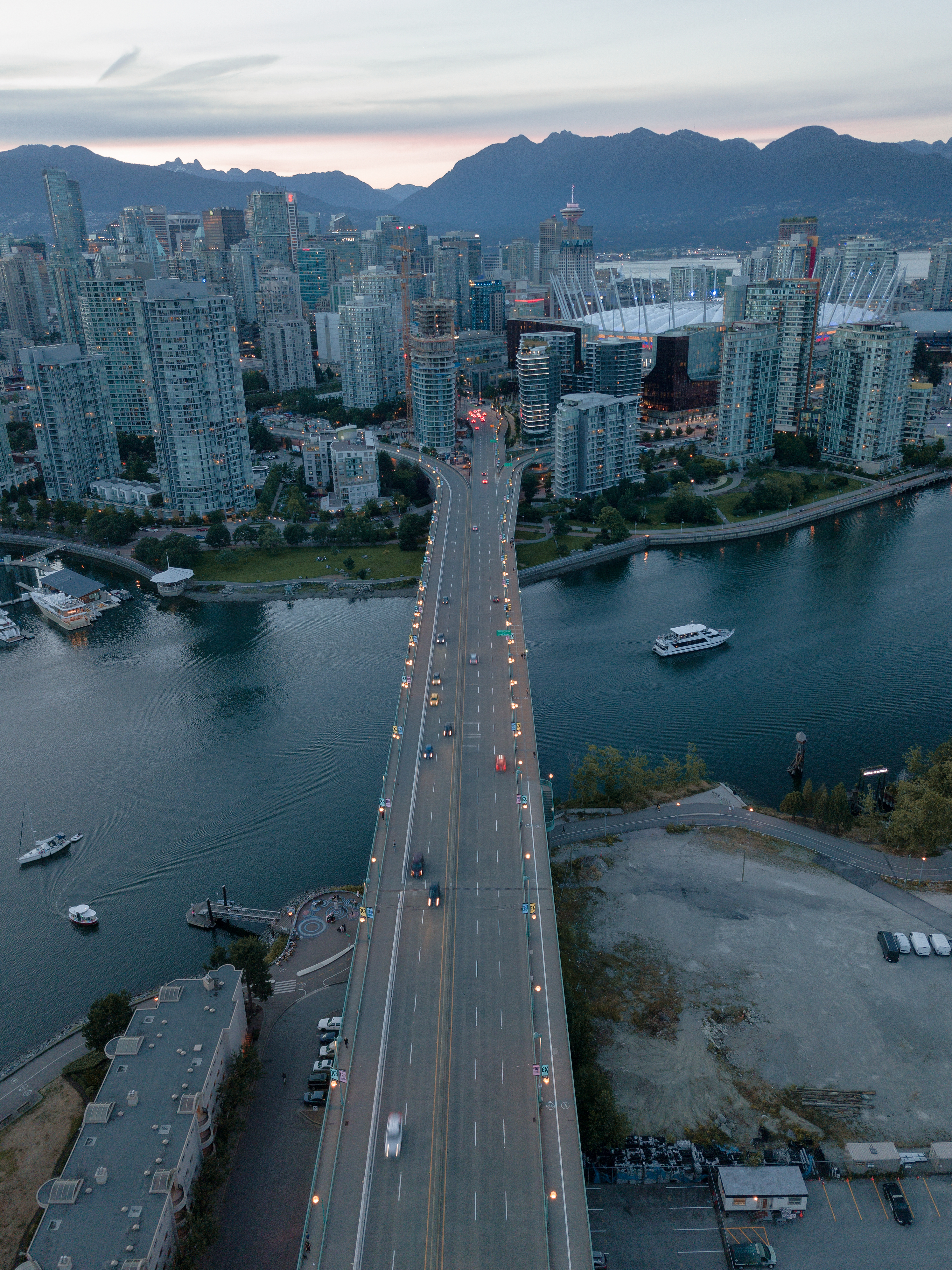
Andrew Calzetti [Photo: Courtesy of Wärtsilä]
“The environment is telling us things are not right and we have the technology and power to change it.”
Wärtsilä’s global initiative, announced in September 2018 as “An Oceanic Awakening,” is designed to jump-start a more sustainable future in the marine shipping industry.
Andrew Calzetti, marketing director of Wärtsilä’s marine division, calls this initiative a wakeup call. When he first transitioned into the marine industry, he says he realized it was slow in adopting technology. “I needed to do something to reenergize what felt a bit like apathy internally and in the industry,” he says. “This was the birth of trying to create excitement for a smart marine vision both internally and externally.”
Calzetti is greatly inspired by Richard Branson’s quote: “The ocean is so important to me, to all of us—and I will keep telling anyone that will listen (and those that won’t) that we need to protect it.” Those words encouraged him when he began working on the project that grew out of what Wärtsilä considers to be its mission—to enable sustainable societies with smart technology.
At the time, Calzetti questioned what was actually being done in the industry to facilitate this goal. He compares the marine industry to the automotive industry, which has made significant developments in efficiency that address environmental issues in the last few decades. “We have this technology, why aren’t we doing something about it?” he says. “One in three vessels have Wärtsilä’s technology onboard. We are a significant, major player in the industry. Why would we just sit idle?”
Calzetti recently shared some of his insight on this movement and the future of our oceans.

[Photo: Tommy Tenzo]
What is “An Oceanic Awakening” and SEA20?
An Oceanic Awakening is a wake-up call. It’s about being bold enough to admit change needs to come and show how collaboration on a broader scale can make a real difference. It’s about generating public awareness and speaking out, not just reaching out to our ecosystem, but to the general public. SEA20 is a platform for dialogue and a bold global initiative to connect 20 of the most ecologically ambitious cities by 2020 in a forum that will drive real societal change. We set out this goal and enabled this platform, which we know at some point will take on a life of its own and be run independently by the cities themselves, to make a real difference, and help cities rethink their roles in marine and energy ecosystems. The SEA20 is run by the Nordic West Office.
What is the goal of this initiative, and how far along are you?
The goal is to radically transform the marine and energy industry into one supremely efficient, ecologically sound, and digitally connected ecosystem. We are already in active dialogue with cities like Helsinki, Hamburg, Rotterdam, and across the globe from Washington to Singapore. We have a list of at least 30 cities that we are considering at present. I think we are well on our way to achieving our vision of having 20 by 2020.
Have you experienced any pushback?
The challenge we’re facing is the same question we were asked in the very beginning when we first launched this, which is why Wärtsilä? This is why we don’t approach the cities themselves; we approach the media, port authorities who are interested, and organizations to open the doors and generate a way for us to speak to the cities. Whenever an invitation has been sent to cities the response has been very positive. We haven’t had any negative responses so far.
Why hasn’t this dialogue already happened?
I’m not sure. I’d like to know why. I’m not a politician, so I won’t say it’s politics that prevented it from happening, but I know that process is a barrier. I feel that dialogue between individual parties is the challenge we must overcome and probably an inhibitor to generating tangible results. Especially when you consider that the marine industry is extremely complex, with many stakeholders, involving so many countries. If you think about it, 90% of global trade is transported by sea. The ecosystem is huge, and I don’t think all of the players have committed to change. I think the focus has been based on profitable growth and not necessarily sustainable growth. The profitable part of it has also been looked at short-term rather than long-term.
What we’re trying to achieve is awareness, involvement, cooperation, and dialogue on a broader scale to create a brighter, safer, and more sustainable future for our industry and everyone involved. This dialogue will be beneficial for everyone, not just us, for our environment, our cities, and our oceans. Legislation can also help. There must be participation, involvement, and commitment from everyone. Not just in this industry, but our ecosystem as well. Politicians, companies, classification societies, customers, partners in marine, energy providers, everybody must play their part, and most importantly, us as consumers. We must be conscious of what we’re buying and how we’re buying it and, if necessary, we should be prepared to spend more to allow those that are actually sustainable brands out there, that are socially responsible, to survive. I think buying on price has contributed to the situation we’re in now. We’re trying to generate awareness that this kind of consumerism can’t go on.
Why is it important to start making changes now?
On a personal level, I think we’ve waited too long. Why wait? Society is calling for it. The environment is telling us things are not right and we have the technology and power to change it. I’m frustrated that there is reluctance to adopt and embrace technology and the solutions that are available to us whether they’re Wärtsilä’s or not. It’s not about coming up with the solutions ourselves because we don’t have all the answers, but the industry itself does. The automotive industry has a lot of the technology we can embrace and adopt and, in fact, we have been doing that. Interesting comparison, automotive introduced traffic-based navigation in 2006 and 12 years later we are trying to get it adopted in the marine industry; we call it Advanced Intelligent Routing. Automated parking systems were introduced in 2003 in cars; we’re currently doing our second set of autodocking tests. We can talk about hybrids as well, which have been around even longer—in 1997 hybrid technology was introduced in automotive, we introduced the technology in maritime in 2011. So the technology is there, but the adoption of the technology has been slow, and this entire campaign, this global initiative, is to reveal exactly that. We might not have all the solutions in Wärtsilä, but there are others in our industry that can provide the missing parts, and it is about time we accelerated change, reversed the trend, to deliver a future our world deserves—one we can all be proud of.
